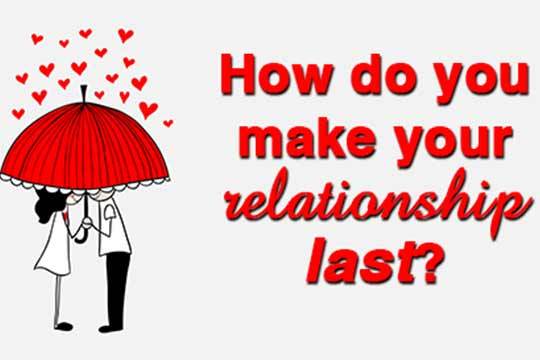Helene Lerner's Blog, page 43
March 31, 2016
6 Quotes to Help You Heal When You Are Hurting
 "Healing takes courage, and we all have courage, even if we have to dig a little to find it."
"Healing takes courage, and we all have courage, even if we have to dig a little to find it."
- Tori Amos
"Even though you may want to move forward in your life, you may have one foot on the brakes. In order to be free, we must learn how to let go. Release the hurt. Release the fear. Refuse to entertain your old pain. The energy it takes to hang onto the past is holding you back from a new life. What is it you would let go of today?"
- Mary Manin Morrissey
"Every day is a new day, and you'll never be able to find happiness if you don't move on."
- Carrie Underwood
"Some days are just bad days, that's all. You have to experience sadness to know happiness, and I remind myself that not every day is going to be a good day, that's just the way it is!"
- Dita Von Teese
"I've reached a point where I'm comfortable in my own skin, and I do what I need to do, to feel good, but I'm built the way I am. The dancer's feet, the bruises on my legs, they're not going to go away. I think real girls have bruises. Tough chicks get bruised. They get dirty. And they have fun."
- Nina Dobrev
"It hurts when you have to smile and you don't want to smile, but the best thing to do is to smile."
- Mary J. Blige
3 Tricks for Saying No
 Your coworker or friend comes to you AGAIN. “Could you fix this for me?” she asks, expecting you to drop what you’re doing, rush over, and handle her computer glitch. You wouldn’t have a problem with this if it wasn’t the third time this week. Except, you like to help out and you don’t want to say “no.”
Your coworker or friend comes to you AGAIN. “Could you fix this for me?” she asks, expecting you to drop what you’re doing, rush over, and handle her computer glitch. You wouldn’t have a problem with this if it wasn’t the third time this week. Except, you like to help out and you don’t want to say “no.”
In truth, you want to say “no,” you just don’t know how and “sure” slips out your mouth so easily. After all, you’re a problem-solver. Give you a task and you handle it. Give you a goal and you turn on the energy.
However, this week you’re working past five every night when your coworkers are leaving on time. You’re doing so much work for others that you’re not getting your own work done. Your very strength, your achieving, problem-solving energy makes saying "no" difficult.
What happens if you say “yes” when “no” was wiser? Too many yes’s swamp you and your own work quality, productivity, or job satisfaction drops.
If you’d like to say “no” when it’s in your best interest, try these strategies.
Short-circuit your “yes” response by asking one question
You probably say “sure” or “yes” first and ask questions later. Once you’re committed, you may find yourself surprised by the task’s complexity or the time commitment you’ve obligated yourself into. Sometimes you seethe resentfully, know that your coworker’s taking advantage of you.
If you instead ask, “What do you have in mind?” or “What would be involved?” you learn what you’re taking on before you commit. These questions also give you the ammunition necessary to turn some of your coworkers’ requests down. For example, if someone asks you to join a committee and you ask, “What time commitment is needed?”, you might learn, “A meeting a week for a month.” Now you can respond, “That’s more than I can handle, could I instead be a resource to your committee. I don’t know if I can squeeze that many meetings into an already crammed schedule.”
Asking questions such as, “How much time would be involved?” and “What else would be involved in that commitment?” also tells your coworker or friend you’re considering the request. Saying “no” after fleshing it out lets the requester down more gently than an immediate, “I can’t help you, I’m sorry.”
Consider the consequences
Next, learn to pause and consider the consequences of saying either “yes” or “no.” By assessing consequences, you prevent yourself from saying “yes” before you look at what a “yes” does to you and your workload.
If you say “yes” to a co-worker, will it divert you from the priorities your boss expects you to accomplish? Those who say “yes” too often sell their own job and priorities short. This doesn’t mean you can flatly say “no” to every request. Sometimes you’ll want to help out, and a “yes” will develop your talents or create growth for you company.
Honesty counts, as does a partial “yes”
When you do say “no,” say it directly. While you can give a brief, convincing explanation so your friend or coworker understands the reason for your “no,” avoid excuses. Others see through them.
You can also provide a partial “yes.” For example, if you’re a supervisor and an employee asks to be sent to training, on company time, you can say, "We can’t afford that. However, if you go on your own time, we'll pay half the cost of the seminar."
The bottom line— you’re in charge of your “sure.”

© 2016, Lynne Curry, executive coach and author of Solutions and Beating the Workplace Bully. Follow her @lynnecurry10 or on www.workplaceocoachblog.comor on www.bullywhisperer.com™
You might also enjoy:
4 Steps to Staying Confident Throughout Difficult Situations
 Do you know who you are? How would you react if people you worked with ganged up on you? That is the experience Belinda had. Her success somehow was seen as a threat to others from her boss to his boss to her colleagues. She was marginalized, excluded from meetings, gossiped about. Here is what she did to empower herself and hold onto her confidence:
Do you know who you are? How would you react if people you worked with ganged up on you? That is the experience Belinda had. Her success somehow was seen as a threat to others from her boss to his boss to her colleagues. She was marginalized, excluded from meetings, gossiped about. Here is what she did to empower herself and hold onto her confidence:
She struggled with her fears and disappointment…
Difficult things happen to competent people and the “invitation” from those that are threatened by your success is to have you feel less than, to feel as if you are a persona non grata – an unwelcome person. Being “cast out” was a very painful and upsetting experience for Belinda. She struggled with the pain she was feeling and the disappointment in how she was being “punished” rather than rewarded for producing good results.
She kept on her path, and she found an ally…
She kept doing her job, producing results, and looked for someone who might “be safe” to discuss her dilemma with and advise her. She took the risk of taking this person into her confidence and told them what was happening. They helped her strategize some options – including going to her boss’s, boss’s, boss – someone not in the game of punishing her for her results. She asked for time to meet with him, told him what had happened, she shared the conversations she’d had with their clients and the results she had been able to produce. She asked what he would advise her to do.
She wasn’t arrogant in her approach…
As Belinda shared her approach with clients and how she’d come to produce her results with them, there was no arrogance in her voice or her words. Her love of her work, her regard for their clients, her desire to serve them well came through to upper management. It was the confidence that comes from dedication and efforts well intended that hit the mark. Her genuine struggle with what she had been dealing with as a result of her success, struck him as an inequitable injustice. He took steps to insure that she was “reinstated” and adequately rewarded for her efforts and results.
She found out that sometimes things that seem hopeless can, in time, turn out well…
Four months later Belinda had her review with her boss. To her surprise the spin on her results was no longer one that was born of his and other’s resentment, that instead her efforts were being regarded with respect. She was rated as exceeding results. She was described as someone who was a valuable asset to the organization and someone who was a consummate professional.
In spite of the ordeal she had gone through, her confidence in why her work mattered had remained intact – it hadn’t been “undone” by the situation. She was able to not allow the painful resentment of others take away the importance and value of her work.
When the situation began Belinda could not have foretold this outcome. But even through the pain she was feeling, she kept working from that genuine place of commitment to the clients she served. While that is its own reward, her efforts to keep going resulted in the rewards of recognition.

Jane Firth, M.Sc., career coach and founder and President of Firth Leadership Partners
March 30, 2016
7 Quotes to Help You Let Go of Resentment

"Resentment is like drinking poison and waiting for the other person to die."
- Carrie Fisher
"The more anger towards the past you carry in your heart, the less capable you are of loving in the present."
- Barbara de Angelis
"My recipe for dealing with anger and frustration: set the kitchen timer for twenty minutes, cry, rant, and rave, and at the sound of the bell, simmer down and go about business as usual."
- Phyllis Diller
"When we can lay down our fear and anger and choose responses other than aggression, we create the conditions for bringing out the best in us humans."
- Margaret J. Wheatley
"Holding on to anger, resentment and hurt only gives you tense muscles, a headache and a sore jaw from clenching your teeth. Forgiveness gives you back the laughter and the lightness in your life."
- Joan Lunden
"Hope makes people good, a lot of the time. You hope for a brighter future, and resentment is outweighed."
- Daisy Ridley
"Bitterness and resentment only hurt one person, and it's not the person we're resenting - it's us."
- Alana Stewart
4 Ways to Handle People Who Don’t Take You Seriously
 Cass arrived fully prepared for the staff meeting. Excitement surged through her as she handed out her detailed proposal, complete with footnotes and graphs. She expected some acknowledgement. She got none.
Cass arrived fully prepared for the staff meeting. Excitement surged through her as she handed out her detailed proposal, complete with footnotes and graphs. She expected some acknowledgement. She got none.
The next day, Cass learned her company’s CEO had named Keith to head a project team to develop the idea she’d proposed. When Cass saw the initial project plan, she protested to her manager that it was essentially her work and she deserved a seat at the team’s table. Her manager said, “We chose innovators for the team.”
How was Cass not an innovator? Or was it simply that company management didn’t recognize her worth?
Maya faced a similar challenge. Newly appointed to head her department she called her staff together three times to outline her vision for the coming year and to tell them what she expected out of them. When her staff returned to their desks they acted as if she hadn’t spoken. Maya hired a consultant to learn how her staff viewed her and the changes she proposed. “They rolled their eyes,” said the consultant, “and said you wouldn’t last long.”
Do you share a similar fate? Do others discount you or your ideas? Look right through you when you speak? Consider you “lesser” than someone with less ability? If so, it’s hard to take.
The good news – you can change how others see you with these proven strategies.
Don’t let their views get to you
When you encounter people who don’t see you as you are, it can create a self-fulfilling prophecy. They believe you’re not worth much and treat you as such. This ticks you off and you’re rude back, reinforcing their negative beliefs.
Instead, keep your eye on your goal. Control your reaction so you don’t confirm the negative assumptions they’ve made about you. Let the way they view you and the comments they make run off you like water from a duck’s back.
Challenge their expectations
Do they pass over you when handing out opportunities? Do they view you as not talented or unprepared for new challenges? Do they consider you unable to handle rough situations?
Surprise them. Stand up for yourself and say, “Next time, I hope you’ll consider me for a similar opportunity.” Show that you’re one hundred percent ready to tackle whatever comes your way by volunteering on your own time with a nonprofit or other outside organization and letting your manager know what you’re accomplishing. If you get knocked down when you tackle a rough assignment, get up again.
Don’t take it personally
Often, those who discount you don’t even recognize they’re insulting you. Don’t try to put them in their place by judging them back. This only creates more negativity. Instead, create your own mental Kevlar by reminding yourself what you have going for yourself. Then, go one step further and treat those who judge you with genuine respect. Make it hard for them to continue disrespecting you.
Ask for coaching
You may be discounted because you have more to learn than you know. Ask for coaching. In Cass’s situation above, she could have asked her manager, “What would I have needed to do to show that I was an innovator?” or “How come my project plan didn’t get acknowledged at the meeting?” You may gain valuable insights. Even better, when you turn those who don’t see you into coaches, they develop a vested interest in helping you succeed.

© 2016, Lynne Curry, executive coach and author of Solutions and Beating the Workplace Bully. Follow her @lynnecurry10 or on www.workplaceocoachblog.com or on www.bullywhisperer.com™
How to Become a Respected Leader
 Naturally, we all want to present ourselves in the best light possible. Having a stellar reputation among colleagues increases your credibility and opens many doors for you. What you do, wear, and say are all conscious decisions that send a message about you. Here's how to cultivate executive presence:
Naturally, we all want to present ourselves in the best light possible. Having a stellar reputation among colleagues increases your credibility and opens many doors for you. What you do, wear, and say are all conscious decisions that send a message about you. Here's how to cultivate executive presence:
Appearance. Every industry has its own code; one size certainly does not fit all. Regardless of how casual your place of work seems, set yourself apart by looking polished and put together. Model your look after the rising leaders of your organization.
Communication. Shrill tones suggest you feel offended, ignored, or wronged. Silence your shrillness by removing emotions from the equation. Over-prepare for meetings to feel confident and be concise. Prepare beyond the conference room as well. Be sure you are conversant in headline topics such as sports and politics to establish personal connections.
Gravitas. When you know you're right, don't hold back! Have faith in yourself. Lynn Utter remembers the meeting that won her serious attention and the support of leaders. At a board gathering, a discussion quickly dissolved into squabbling. Utter spoke up and laid out her case. Later on, a board member commented, "I had no idea who you were, but in that moment you showed you had what it takes."
Adapted from (Forget a Mentor) Find a Sponsor: The New Ways to Fast-Track Your Career, Sylvia Ann Hewlett, Harvard Business Review Press, 2013.
How to Empower Yourself and Stop Buying into Sabotage
 You set your sights on particular goals, you encounter obstacles, but without realizing it, an internal critical voice may be your biggest obstacle. Why?
You set your sights on particular goals, you encounter obstacles, but without realizing it, an internal critical voice may be your biggest obstacle. Why?
Have you met? Say hello to your self-defeating voice…
There is a self-defeating voice each of us has. I call this voice the Negator: Different from the conscience that helps you distinguish “right from wrong,” its sole purpose is to criticize you, make you doubt yourself and try to stop you from accomplishing important things in your life.
How your self-defeating voice differs from your conscience…
When you question yourself—wish you had said it differently, done it differently—some of that questioning is useful, and can be used to actually do it better the next time. Your Negator is different, it will say things like how stupid you are for having done it the way that you did. It will make you believe that you “don’t have what it takes.” Let’s look more closely at this critical voice and consider three steps to begin taking away its power. We’ll start with the key to freeing yourself:
Taking power away from your Negator…
Every time you believe what the Negator is telling you, things like “You don’t measure up to so and so,” or “You’ll never make partner,” you are actually feeding it power. Buying into and agreeing with what it is saying is what feeds its power. Every time you stop yourself from believing your Negator’s messages you take its power away and you empower yourself. You are stopping your Negator right in its tracks.
How to begin? Here are three simple steps…
Using a notebook that is for your eyes only, for one week:
By identifying the messages you are listening to that cause you to doubt yourself and lose confidence, you take an important step. By not buying into these messages you will succeed in taking power away from the Negator and giving it back to yourself. Where it belongs.

Jane Firth, M.Sc., career coach and founder and President of Firth Leadership Partners
March 29, 2016
Chocolate Phyllo Bar Recipe
Want a delicious dessert that's healthy and easy to make? Try this Chocolate Phyllo Bar recipe by Clean Eats!

Ingredients:
4 large sheets of organic phyllo dough
1/4 cup unsalted organic grass-fed butter or ghee, melted
1 large dark chocolate bar
1/2 cup hazelnuts, divided
Directions:
Preheat oven to 375.
Place 1 sheet of phyllo dough on the bottom of a pan, using a pastry brush, brush with melted butter. Continue with all 4 layers of dough. Place chocolate bar in the middle. Sprinkle hazelnuts. Wrap the phyllo around the chocolate bar until it is sealed. Butter all around the phyllo dough. Sprinkle more hazelnuts, and a little sea salt on top! Bake for 15 minute or until golden brown!
You can find more great recipes on Clean Eats' Facebook page and YouTube channel!
5 Secrets to a Lasting Relationship
 You have probably seen the pictures on Pinterest- an old man kissing his wife’s wrinkled cheek, seventy year olds jumping on the bed holding hands in matching pajamas- relationships that have lasted a lifetime. It’s been said that the need to love and be loved is our strongest universal need. So how do we create loving relationships that last? While I could easily write from experience a thousand ways to get it wrong, I have realized a few ways to get it right:
You have probably seen the pictures on Pinterest- an old man kissing his wife’s wrinkled cheek, seventy year olds jumping on the bed holding hands in matching pajamas- relationships that have lasted a lifetime. It’s been said that the need to love and be loved is our strongest universal need. So how do we create loving relationships that last? While I could easily write from experience a thousand ways to get it wrong, I have realized a few ways to get it right:
Feel Lucky: Choose your love, and then fiercely love your choice. Remind yourself each day to cherish your partner (and to cherish yourself for that matter). Think back on how much you wanted to find love, realizing that it’s right in front of you. You get to go through life with someone who loves you by your side. How lucky!
Dream Together: The monotony of the day to day can make any relationship feel a little dull. By regularly setting aside time to dream together, you pull yourself out of the daily grind to plan for the future. It can be an activity for the weekend, a big trip in the summer, plans for a home remodel, even an idea for a business or invention. Dreaming together unites your vision for an exciting future.
Be Your Partner’s Biggest Fan: A man married for almost forty years once told me, “I love her more than my own life, and she’s my biggest fan.” You have the opportunity not only to dream together, but to support each other's unique dreams. Make it a priority to cheer for one another. Recognize the good he does, and help him reach his goals.
Don’t Correct Your Partner in Public: You may have seen this couple: he is telling a story to the group, and his wife interjects every sentence over some minor detail he misreported or left out. It seems like a small thing, but it reflects a deeper issue: being overly critical of your partner. Lasting relationships are built on accepting the other person completely as they are. In other words, love him wholly and let the small stuff go.
Fill Your Cup: And we are back to you! The biggest secret to a lasting relationship is making sure that you are happy. There are days when our partner can’t do anything right- even the way he blows his nose is annoying! If you’re at that point, it’s almost guaranteed that you are the one feeling miserable. You are likely being too hard on you, and are consciously or subconsciously beating yourself up. Do what you need to reset, and you’ll again feel lucky to get to spend life with this person. And the best part? They chose you, too!

- Jennie Swenson, Parent Educator and Positive Youth Development Specialist
4 Things You Should NEVER Say to Your Boss
 The problem with saying the wrong thing to your boss is that you can never undo it. Here are four things you should keep to yourself:
The problem with saying the wrong thing to your boss is that you can never undo it. Here are four things you should keep to yourself:
An automatic "No." When your boss asks you to take on a new responsibility or puts something else on your overflowing plate, never say "No." At least, not at first. Listen, ask questions -- then, if you still have concerns, explain them fully.
"I tried to warn you about that." No one likes to hear, "I told you so." Especially not a manager. Always give your boss a way to "save face." Instead of emphasizing the mistake, ask, "What can I do to help?"
Anything that ends with "But." It negates everything you said before it. "I'm sorry I didn't get my report in on time, but..." alerts your boss that you're about to offer an excuse. Try this instead: "I'm sorry my report was late and the next one will be on time."
"That won't work." When your boss presents an idea, obviously she thinks it's good. Take time to listen and you just might find out that your manager has thought through your objections and has already come up with solutions.

- Alan Allard, Creator of Enlightened Happiness. For more from Alan, sign up for his newsletter at alanallard.com.
Helene Lerner's Blog
- Helene Lerner's profile
- 9 followers



